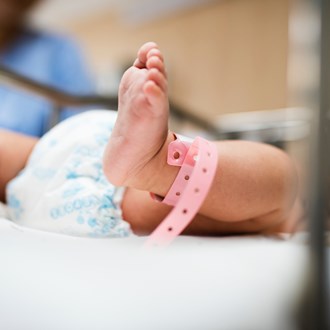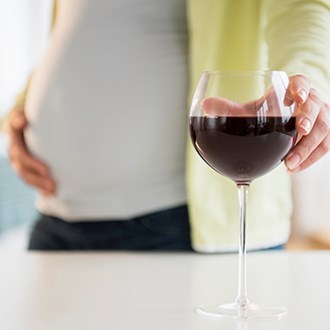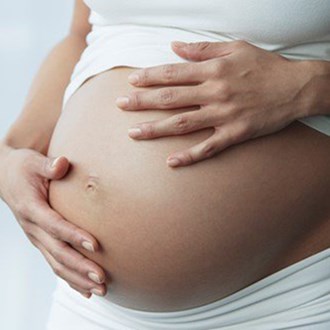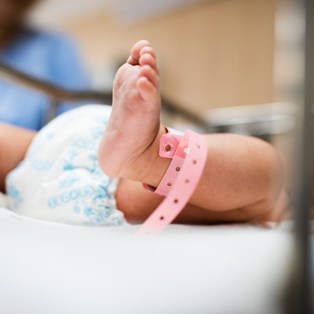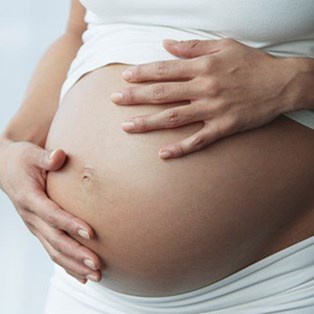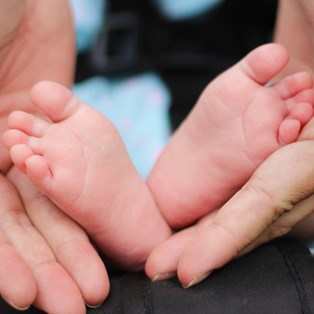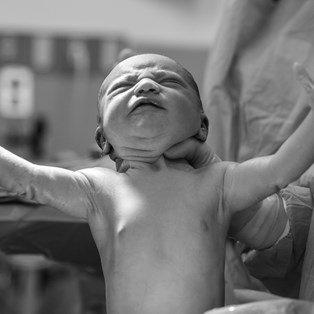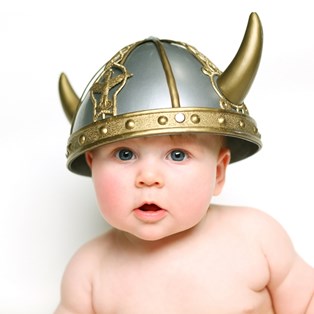How to tell if you’re pregnant before the test says yes
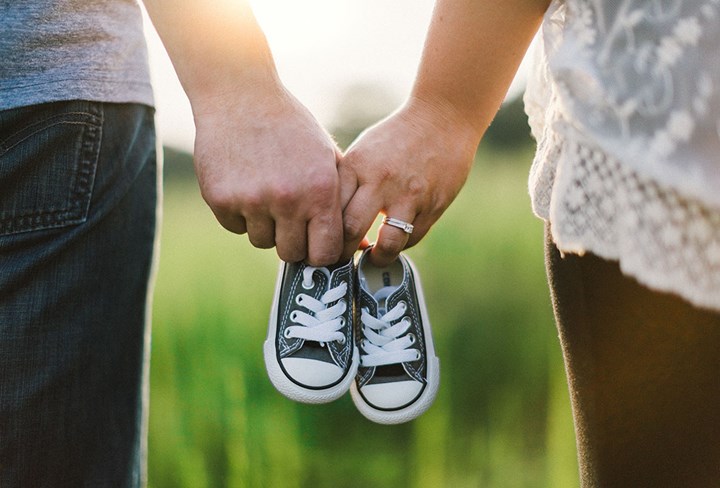
Think you might be in the early stages of pregnancy? Here are some of the first signs to watch out for.
When you’re trying to get pregnant, chances are you’re analysing every little twinge and ache and wondering if it could be the first signs of pregnancy. While taking a pregnancy test and seeing your doctor is the best way to confirm that you're pregnant, these are some of the very early signs of pregnancy you may have before a positive test. Fingers crossed!
Can you have pregnancy symptoms before a positive test? First of all, you need to understand how home pregnancy tests work. Home pregnancy tests (the kind where you pee on a stick) are designed to detect the presence of human chorionic gonadotropin or hCG, a hormone that's produced during pregnancy. Most of the time, getting a negative result on a pregnancy test means you are probably not pregnant.
However, there are a few situations in which a pregnant woman could get what's called a 'false negative' on a pregnancy test. These can include testing too early, doing the test incorrectly or testing too late in the day (testing is best done early in the morning. If you've tested too early and you are actually pregnant, you may get a negative result or an extremely faint line (a line that's so faint you have to really squint to see it). If you are pregnant, that line should get darker as the days go by, so if you get a negative or faint result and your period is late, it may be worth testing again a day or two later.
Here's a guide to some of the pregnancy symptoms you may notice before a missed period, even if there's a negative test result.
1 Sore breasts
Swollen boobs or sensitive nipples are one of the first signs of early pregnancy. This can be due to rising levels of the hormones estrogen and progesterone. Later on in pregnancy, the areola (the skin around the nipple) becomes darker and the veins in the breast become more obvious.
2 Fatigue
The tiredness that’s experienced during pregnancy is unlike any other and can be due to the massive rise in your progesterone levels. You'll be so tired you'll wonder how you can make it to the end of the working week. Progesterone helps your baby grow but it also slows down your metabolism, so you may feel the kind of bone-crushing tiredness that only a nap can cure.
3 Mood swings
Whether you’re crying at TV ads, experiencing anxiety or glaring daggers at your partner because he slammed the door, intense emotions are an early sign of pregnancy. If your pregnancy is confirmed you can expect them to last for the next nine months!
4 Elevated BBT
A rise in temperature, otherwise known as basal body temperature (BBT) is another common sign that pregnancy may be likely. Your BBT rises slightly after ovulation and if it stays elevated for 14 days or more, you may be pregnant.
5 Nausea
Long before morning sickness kicks in you may feel a little bit queasy or ‘off’ from time to time due to hormonal surges. If you’re pregnant, this feeling should intensify over the coming weeks, tapering off around the 12-week mark.
6 Cramps
It’s a cruel trick of nature, but PMS and pregnancy cramps are very similar. While cramping may mean your period is on the way it can also be a sign of implantation or your uterus may be stretching to make room for growing a new bub. If the cramping comes and goes and seems to be on one side more than the other, this could mean a potential pregnancy.
7 Heightened sense of smell
Your sense of small can become more sensitive during pregnancy, so food, drinks, perfumes or even other people can have a stronger odour. If citrus fruit suddenly smells incredible or the scent of strong body odour on a random person in the supermarket is making you gag, you may be in the early stages of pregnancy.
8 Extra toilet trips
Finding you need to pee more often than usual? Pregnancy causes an increase in levels of body fluids and greater kidney efficiency, so you might be waking at 2am to pop to the loo. As pregnancy progresses, your uterus presses against your bladder, increasing the need to urinate.
9 Increased discharge
If you seem to have more whitish discharge than usual, it can be a sign of early pregnancy. This is due to elevated estrogen levels and is another symptom you may notice even before you do a pregnancy test.
10 Changing tastes
A metallic taste in the mouth (also known as dysgeusia), increased saliva production and a change in taste can all be signs of early pregnancy symptoms. Smells you previously loved – such as your early morning coffee – may now turn your tummy, too.
When should I seek medical advice?
If you get a positive pregnancy test, followed by a negative one, this may be indicative of a miscarriage, particularly if you also have some or all of the following symptoms: abdominal cramping, vaginal bleeding, and the loss of pregnancy symptoms such as fatigue, nausea, and tender or sore breasts. When in doubt, see your doctor as soon as possible. If your period is late but your test is negative, ask your doctor for a blood test, which is more accurate than a home pregnancy test and will determine whether or not you are pregnant.

Nicola Conville has worked as a journalist and editor for more than 20 years across a wide range of print and online publications. Her areas of expertise are parenting, health and travel. She has two children; Lucy, age eight, and Nathan, age five.


